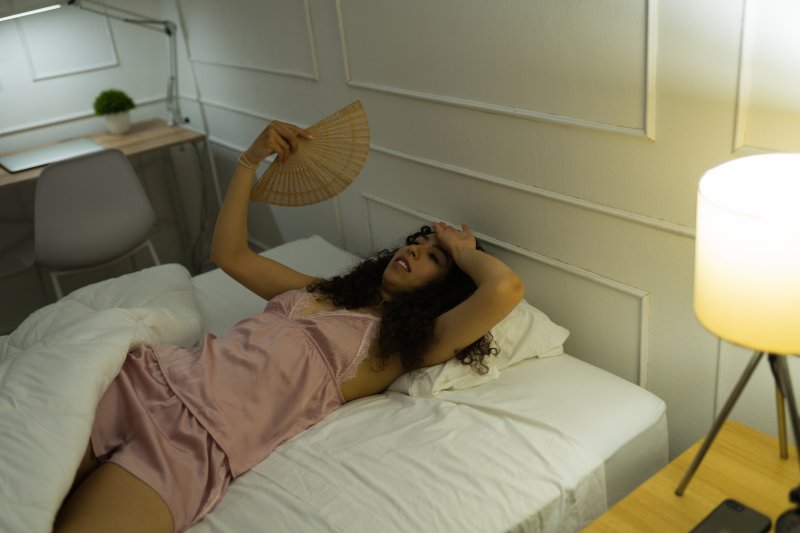
Do you like the temperature in your house to be on the warmer or cooler side? For many people, being able to snuggle up under the covers in a cold room is ideal, but others despise the thought of being chilly throughout the night. No matter what your preference might be, the truth is that if you have sleep apnea, temperature matters, which is why you should keep reading to learn what you can do to achieve the perfect environment for nightly rest.
How Does Temperature Impact Sleep Apnea Symptoms?
If you are a fan of warm temperatures and like to keep your room toasty at night, you may not be happy to hear that it can worsen your sleep apnea symptoms. Here’s why:
Your body’s natural temperature fluctuates throughout the night. Initially, as heat is released, you begin to cool down, making it easier to fall into a deep sleep. However, this is only possible if the room you’re in is properly prepared for successful rest.
Experts believe people should sleep in a room with a temperature set between 65 and 68 degrees Fahrenheit. This might seem uncomfortably cold for some individuals, but if a thermostat is set to anything above 68, chances are that you will wake up more often because your body will not be able to drop in temperature like it should.
This type of interruption can exacerbate sleep apnea symptoms, causing additional fatigue, moodiness, depression, insomnia, and other problematic issues (i.e., drowsy driving).
How Can You Ensure an Appropriate Sleeping Environment?
If you want to make sure that you remain comfortable throughout the night while also getting the sleep you need, you may need to make some changes to ensure your room is set up for success. You can:
- Use blackout curtains to prevent sunlight from cascading early in the morning. Keeping them drawn will also prevent additional heat from seeping in.
- Stay hydrated throughout the day by drinking cold water, as this helps keep your body temperature down.
- Avoid flannel pajamas and heavy sheets or comforters. Choose loose clothing and lighter bedding. You can also buy a cooling mattress and pillows.
- Do not exercise immediately before bedtime, as this will increase your body temperature and make it harder to cool down.
- Sleep separately if possible.
- Do not eat heavy or spicy foods before bedtime, and avoid drinking alcohol.
- Set the temperature in your house between 65 and 68 degrees.
By making these changes, you will begin to notice a positive change in your sleep quality – one that allows you to rest throughout the night instead of waking up in a puddle of sweat.
About the Practice
Star Sleep & Wellness in Irving is here to make sure you know how to get the best night’s sleep. Apart from treating your sleep apnea, we can also suggest ways to achieve the ideal sleep environment. From changing the temperature of your bedroom to trading out heavy blankets for lightweight sheets, we’ll help you feel more confident each night before going to bed. If you need help to make the necessary changes to ensure a better night’s sleep, contact us right away.
